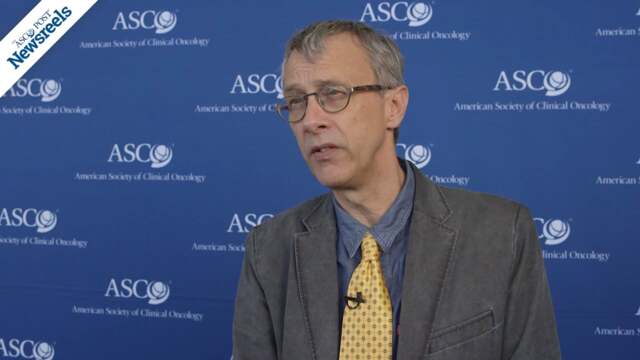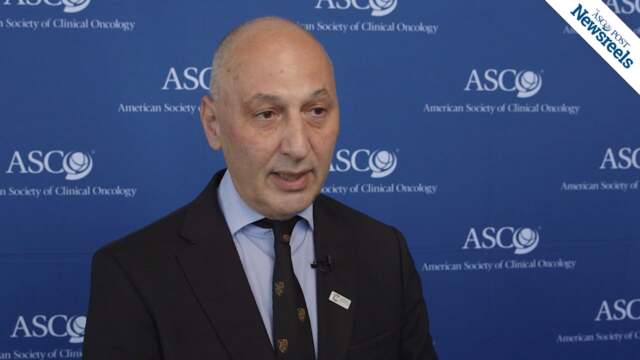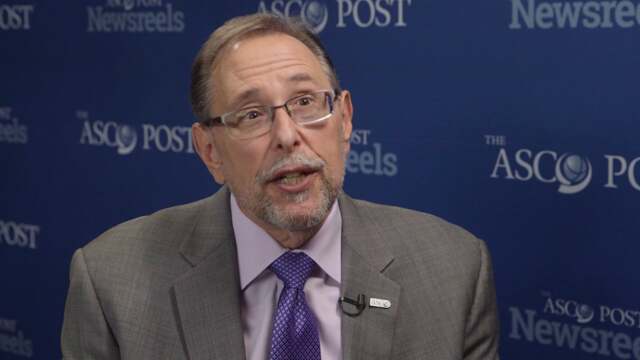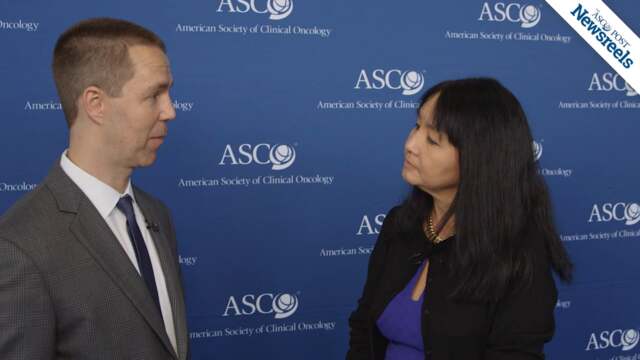Yousuf Zafar, MD, on the Financial Burden of Cancer Care
2016 ASCO Annual Meeting
Yousuf Zafar, MD, of Duke Cancer Institute, summarizes his educational lecture on the financial toxicities of treatment and the need to focus on both short- and long-term interventions to reduce the burden on patients.
Vali A. Papadimitrakopoulou, MD, of MD Anderson Cancer Center, and Heather A. Wakelee, MD, of Stanford University, discuss findings on adjuvant chemotherapy with or without bevacizumab for early-stage non–small cell lung cancer, with outcomes based on chemotherapy subsets (Abstract 8507).
Martin J. Van Den Bent, MD, PhD, of the Daniel den Hoed Cancer Center, discusses the interim analysis of the EORTC phase III study on concurrent and adjuvant temozolomide in anaplastic glioma without 1p/19q co-deletion (Abstract LBA2000).
John P. Neoptolemos, MD, PhD, of the University of Liverpool, discusses findings from this international phase III study of adjuvant combination chemotherapy: gemcitabine and capecitabine vs monotherapy gemcitabine in patients with resected pancreatic ductal adenocarcinoma (Abstract LBA4006).
Richard L. Schilsky, MD, ASCO’s Chief Medical Officer, discusses the key presentations at this year’s conference.
Eric Roeland, MD, of the University of California, San Diego, and Linda Van Le, MD, of the University of North Carolina discuss ways to manage symptoms that affect up to 80% of postmenopausal women, diminishing their quality of life.





